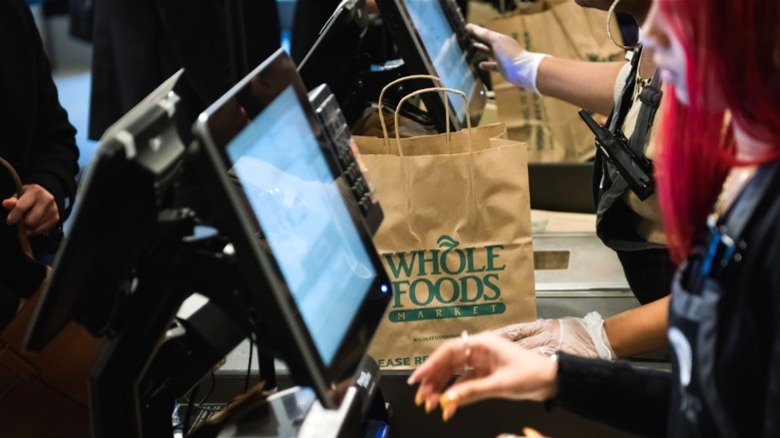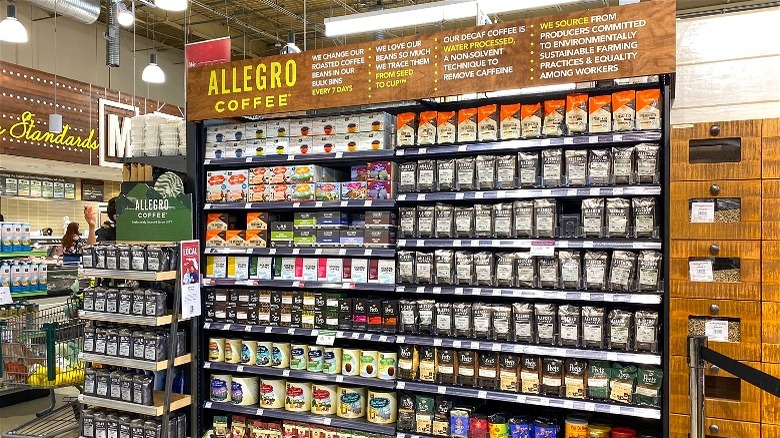You've Been Buying The Wrong Coffee At Whole Foods
Who doesn't love waking up in the morning, hitting that coffee maker, and letting the rich aroma of freshly brewed beans waft through your senses as an informal, much-welcomed greeting to your day? According to one 2020 study, most people enjoy not only the taste and aroma of coffee, but the experience of drinking it as well.
With so many caring about this velvety rich morning beverage, it's no surprise people are going to Whole Foods to pick up their beans, given the grocer's boutique-style vibe and optimal health guarantee. If you're a glorified coffee drinker, you've probably already debunked the myths about coffee, but do you truly know what to look for when shopping for your beloved morning starter?
While there are many different types of coffee out there, the process of choosing each week or month can feel daunting, especially when you rely so heavily on one drink to energize you for the entire day. According to Roasty Coffee, keeping an open mind, buying smaller quantities, and supporting local coffee companies over nameless house brand beans can make all the difference.
It's also important to know what terms like "light" and "dark" mean when choosing your beans and understand the meaning behind phrases like "growing region" and "fair trade certified" (per Consumer Reports). If you're a Whole Foods regular, you've already learned the benefits of shopping from the bulk bins, but do you know which coffees stand above the rest for the high-end retailer of choice?
Most recommended coffees at Whole Foods
With inflation taking over the world's grocery budgets, it may seem like a good idea to buy the cheapest coffee available, especially when you're already shopping at Whole Foods. However, there are some smaller companies that, taste-wise, rank above the rest according to coffee connoisseurs.
While Roasty Coffee lists 11 javas to buy before grabbing the pre ground 365 house blend, three on the list are Allegro varieties — an independent coffee company based in Boulder, Colorado that fused with Whole Foods in 1997 (per City of Thornton). The Organic Continental Blend ranks high for its earthy, chocolatey tones while the Kenyan Grand Cru and Organic Mexico La Corona De Chiapas are single-origin beans, which is a fancy way of saying each kind comes from one specific farm or region of land which is highly sought after in the coffee world (per Forbes).
Speaking of tracking your beans' journey from farm to morning cup, Sightglass Coffee Blueboon Blend is not only recommended for its unique flavors of honeysuckle and citrus, but for the company's transparency as well.
While there are many highly-ranked coffee shops across the U.S. for you to enjoy a quick cup of joe, drinking coffee at home is a special, daily ritual for most, so choosing the right coffee is important. The next time you're at Whole Foods buying your weekly groceries, opt for one of the finer, transparent blends or single-origin varieties: coffee may be linked to your livelihood, but it should taste good too.

